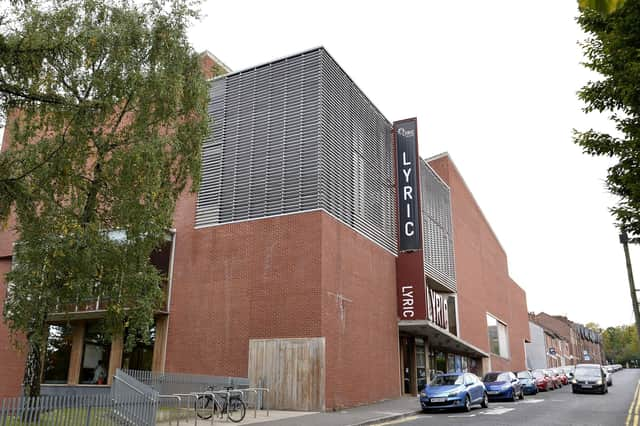Philip McGarry: Theatre visits to see Sean O'Casey's 'Dublin trilogy' and the new Niedermayer documentary are pertinent reminders of the 'murdering hate' of political violence


I also saw in the Queen’s Film Theatre in Belfast the film “Face Down”, dealing with the murder of Thomas Niedermayer.
O’Casey’s plays premiered between 1923 and 1926, but their core theme of the catastrophic human consequences of political violence remains entirely pertinent today.
Advertisement
Hide AdAdvertisement
Hide AdO’Casey was a committed socialist, and he became general secretary of the Irish Citizen Army. He resigned from this in October 1914, in protest at its drift away from socialism and towards nationalism.


He did not take part in the 1916 Rising. His response to it, as portrayed in “The Plough and the Stars”, was to focus on how the destructive violence fell particularly hard upon the Dublin poor. (This perspective has been reinforced by the work of RTE broadcaster Joe Duffy, whose 2015 book highlighted the 40 children killed during Easter week).
The first play produced, “Shadow of a Gunman”, premiered in the Abbey Theatre on April 12, 1923. The civil war was still going on, and the programme notes declared that any gunshots heard during the play were part of the production, and that people should stay in their seats!
One of the most famous lines is spoken by Seamus Shields: “I still believe in the freedom of Ireland, but I draw a line when I hear the gunmen blowing about dying for the people, when it’s the people who are dying for the gunmen.”
Advertisement
Hide AdAdvertisement
Hide Ad“Juno and the Paycock” is the best known and most critically regarded of the trilogy.
As in all three plays the strongest character is a woman, Juno Boyle, who not only goes out to work (unlike her feckless husband and wounded son), and runs the household, but has the emotional intelligence and humanity to articulate basic values that have resonated ever since 1924.
In one scene involving the killing of the son of a neighbour, Juno’s husband says: “We’ve nothing to do with these things. That’s the Government’s business.”
Juno responds: “How’s a body not to mind these things. Sure if it’s not our business, I don’t know whose business it is.”
Advertisement
Hide AdAdvertisement
Hide AdThis succinctly cuts through the typical human tendency – as prevalent now as in 1924 - to deal with uncomfortable realities by rationalising or ignoring them. Juno reminds us of our personal responsibilities in this life.
In the final moments of the play, having just heard of the brutal killing of her own son, she cries out: “Sacred Heart of Jesus, take away our hearts of stone, and give us hearts of flesh. Take away this murdering hate.”
I first saw the play at the Lyric in the late 1970s, and at that time of daily violence those words spoke directly and emotionally to the audience.
Last week, 99 years after they were first expressed, they again brought the capacity audience to its feet.
Advertisement
Hide AdAdvertisement
Hide AdSix months after the attempted murder of PSNI Detective Chief Inspector John Caldwell in Omagh, and in the context of deep political uncertainty, O’Casey is as relevant as ever.
The concept of “hearts of stone” brings us to the searing documentary film “Face Down”, directed by Gerry Gregg, and written by David Blake Knox.
Thomas Niedermayer was the German managing director of the Grundig factory in west Belfast, which employed over 100 people in the early 1970s. He was kidnapped by the IRA in 1973 and murdered.
The killing was not admitted, and he was secretly buried in a rubbish dump.
Advertisement
Hide AdAdvertisement
Hide AdLies were put about that he had taken himself away from Northern Ireland after having an affair.
His body was only located in 1981, following outstanding detective work by CID.
Tragically, Mr Niedermayer’s widow killed herself in 1990.
Two years later one of her two daughters, Renate, died due to mental health problems, while the other, Gabrielle, killed herself in 1994.
Finally, Gabrielle’s widower took his own life in 1999.
The key figures in the film were Gabrielle’s two daughters. They are determined that the tragedy will not continue into a third generation, and worked with the filmmakers to honour the memory of those of their family who died, but also to help them move on with their own lives.
Advertisement
Hide AdAdvertisement
Hide AdIt took “hearts of stone” to plan and carry out the grotesque treatment of Thomas Niedermayer, as indeed it did for the other 3,000 killings carried out by loyalists and republicans.
Sean O’Casey got it right in 1923, writing and producing his famous plays, even as civil war raged.
We are all entitled to our views; but we are not entitled to kill our neighbours for our views.
Take away this murdering hate.
Dr Philip McGarry FRCPsych is a consultant psychiatrist and former Alliance Party chair